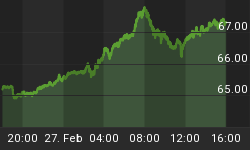- upward surprise + upward revision in #Payrolls - not too shocking, as I pointed out in last article. Weak hours though...
- Here is part of what's happening in #payrolls: more jobs, fewer hours = employers cutting back hours to avoid Obamacare coverage
- Question is, which is better for confidence? More jobs, lower earnings & wages, or fewer, but better, jobs? Probably the former.
- average weekly hours have stagnated since 2011, even as Unemployment has fallen.
Today's Employment report was pretty straightforward: an upward surprise to payrolls and upward revisions; a decline in the Unemployment Rate, and declines in hours worked. The upward revisions to Payrolls is not really a surprise, although seeing the Unemployment Rate continue to decline when Consumer Confidence "Jobs Hard to Get" is increasing is unusual.
Two years ago, the "Average Hours Worked" was 34.4 hours and the Unemployment Rate was 9.0%. Today, average hours worked is still 34.4 hours and the Unemployment Rate is 7.5%.
What I said about Obamacare coverage should be expanded a bit. There have been anecdotal reports (see, e.g., here and here) that many employers are cutting back hours for some employees, because they are required to offer health insurance (at steep premium increases) to part-time employees working at least 30 hours per week. The incentives are large, especially for employers who are near the 50 employee cutoff, to cut back employee hours. The way this would show up in the data, if the behavior was widespread, would be (a) a decline in average hours, as more people work shorter shifts, and (b) potentially (but not automatically) an increase in the number employed, since an employer who cuts 100 hours of work from existing employees is now 10 hours short of the labor input needed. I suspect this is only partly the case - if you cut 100 hours, maybe you add three 25-hour part-timers (it still costs money to hire, after all) - but it may help explain why the payrolls number keeps rising and the jobless number keeps falling although the average hours worked is pretty stagnant.
It would also help resolve the conundrum between the "Jobs Hard to Get" survey result and the Unemployment Rate, although it is a small divergence at present. If respondents are answering the survey as if the question is whether good or full-time jobs are hard to get, it may well be the case that those jobs are getting more difficult to find while there are more part-time positions being offered.
This is mere speculation, and storytelling, but I think it's plausible that this is happening and may be affecting the data.
You can follow me @inflation_guy!
Enduring Investments is a registered investment adviser that specializes in solving inflation-related problems. Fill out the contact form at http://www.EnduringInvestments.com/contact and we will send you our latest Quarterly Inflation Outlook. And if you make sure to put your physical mailing address in the "comment" section of the contact form, we will also send you a copy of Michael Ashton's book "Maestro, My Ass!"















